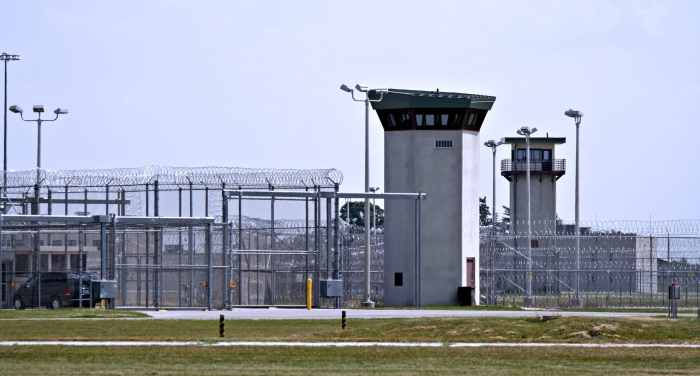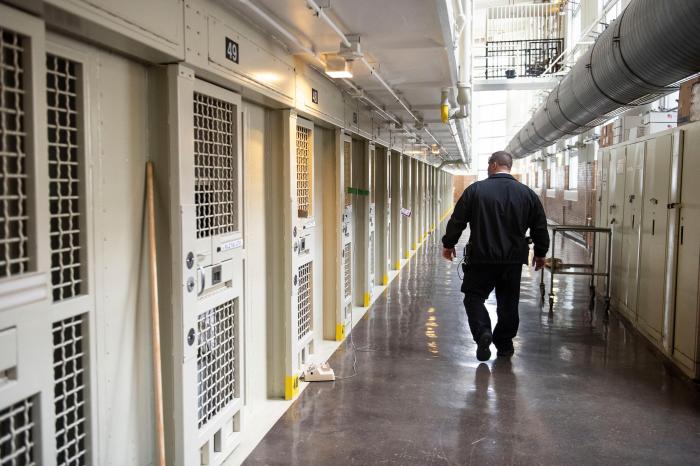The long goodbye mother’s day in federal prison – The Long Goodbye: Mother’s Day in Federal Prison offers a profound exploration into the emotional turmoil and challenges faced by incarcerated mothers on Mother’s Day. This poignant narrative sheds light on the profound impact of separation on mother-child relationships, unveiling the resilience and hope that can emerge amidst adversity.
This compelling narrative delves into the limited communication methods available to incarcerated mothers, highlighting the crucial role of phone calls, letters, and video visits in maintaining meaningful connections with their children. It also examines the coping mechanisms and sources of strength that incarcerated mothers rely on, including faith, therapy, and support groups.
The Long Goodbye: Understanding Mother’s Day in Federal Prison

Mother’s Day can be a particularly challenging time for incarcerated mothers. Separated from their children, they face emotional turmoil and the complexities of maintaining mother-child relationships from behind bars.
The Emotional Toll
Incarcerated mothers grapple with intense feelings of guilt, longing, and grief. The inability to be physically present for their children’s special day can exacerbate these emotions, leading to feelings of isolation and despair.
Impact on Mother-Child Relationships
Separation can strain mother-child bonds. Incarcerated mothers may struggle to maintain regular contact and provide emotional support. Children, in turn, may experience confusion, anger, and a sense of loss.
Real-Life Stories
- Sarah, an incarcerated mother of two, describes Mother’s Day as “the hardest day of the year.” She longs to hold her children close and misses out on their milestones and everyday moments.
- Emily, another incarcerated mother, says that video visits have helped her stay connected with her daughter. However, she still struggles with the limitations and the knowledge that she cannot be there for her physically.
Bridging the Distance: Communication and Connection

Despite the challenges, incarcerated mothers strive to maintain connections with their children. Limited communication methods become lifelines.
Phone Calls and Letters
Phone calls are highly valued by incarcerated mothers, allowing them to hear their children’s voices and share updates. Letters provide opportunities for more in-depth conversations and the exchange of drawings and photos.
Video Visits, The long goodbye mother’s day in federal prison
Video visits have become increasingly important, enabling mothers to see and interact with their children face-to-face. These visits can be emotional but also provide a sense of connection and normalcy.
Maintaining Meaningful Connections
Incarcerated mothers employ various strategies to stay connected with their children. They write letters filled with love and encouragement, send drawings and handmade gifts, and use phone calls to sing songs and tell stories.
Hope and Resilience: Finding Solace in Darkness: The Long Goodbye Mother’s Day In Federal Prison

In the face of adversity, incarcerated mothers find strength and hope through various coping mechanisms.
Faith and Spirituality
Faith provides comfort and a sense of purpose for many incarcerated mothers. They find solace in prayer, meditation, and the belief in a higher power.
Therapy and Support Groups
Therapy and support groups offer a safe space for incarcerated mothers to process their emotions, develop coping skills, and connect with others who understand their experiences.
Stories of Hope
- Jessica, a formerly incarcerated mother, credits her faith and the support of a support group with helping her overcome addiction and rebuild her relationship with her children.
- Maria, another formerly incarcerated mother, found hope in education and now works as a paralegal, providing support to other incarcerated mothers.
Advocacy and Support: Addressing Systemic Issues

The challenges faced by incarcerated mothers extend beyond Mother’s Day. Systemic issues require attention and advocacy.
Access to Rehabilitation Programs
Incarcerated mothers need access to rehabilitation programs that address the underlying causes of their incarceration, such as addiction, trauma, and mental health issues.
Family Reunification
Family reunification is crucial for incarcerated mothers and their children. Advocacy efforts focus on reducing barriers to reentry and supporting families after release.
Organizations and Support Groups
Numerous organizations and support groups provide assistance to incarcerated mothers, including legal aid, education, and housing support. These organizations play a vital role in advocating for their rights and well-being.
Commonly Asked Questions
What are the emotional challenges faced by incarcerated mothers on Mother’s Day?
Incarcerated mothers experience a profound sense of loss and separation on Mother’s Day, as they are unable to physically interact with their children. This can lead to feelings of guilt, sadness, and anxiety.
How do incarcerated mothers maintain connections with their children?
Incarcerated mothers rely on limited communication methods such as phone calls, letters, and video visits to maintain connections with their children. These methods provide a lifeline of emotional support and help to foster a sense of closeness.
What coping mechanisms do incarcerated mothers use to deal with the challenges of Mother’s Day?
Incarcerated mothers employ various coping mechanisms to deal with the challenges of Mother’s Day, including faith, therapy, and support groups. These strategies provide comfort, strength, and a sense of community.